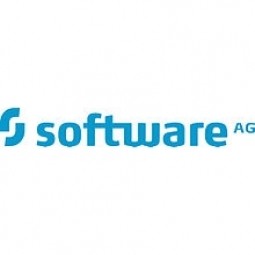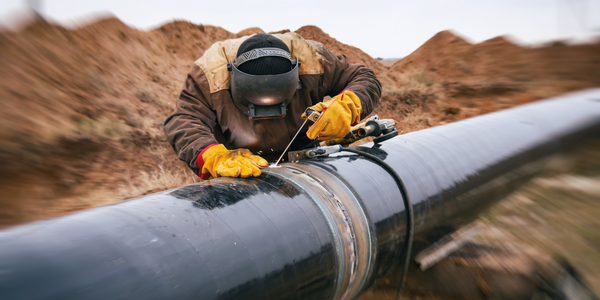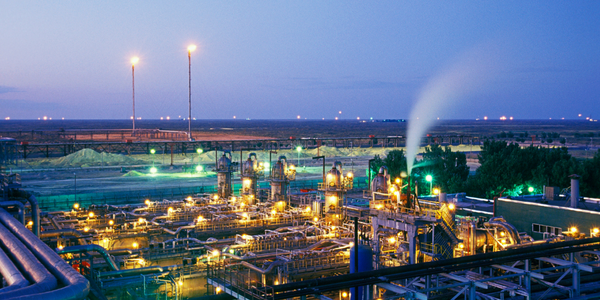Download PDF
Taking the Big First Step Toward Digital Transformation
Technology Category
- Platform as a Service (PaaS) - Application Development Platforms
- Analytics & Modeling - Real Time Analytics
Applicable Industries
- Oil & Gas
Applicable Functions
- Discrete Manufacturing
- Logistics & Transportation
Use Cases
- Predictive Maintenance
- Process Control & Optimization
Services
- Software Design & Engineering Services
- System Integration
The Challenge
The Russian oil company faced several challenges including technological disruption across all lines of business, intensifying global competition, managing dozens of subsidiaries operating worldwide, overly complicated business processes, and a government mandate to digitalize operations. The company operates in an extremely challenging physical environment and must manage new disruptive technologies transforming all areas of the oil production process. Failure to keep up can mean unprofitability without warning. The company's top priority is the urgent adoption of Industry 4.0 technologies such as the Internet of Things (IoT), artificial intelligence, real-time big data analysis, predictive intelligence and resilient production systems.
About The Customer
The customer is a giant Russian oil company that has rapidly grown its business in the fields of exploration, development, production, refinement and the sale of oil and gas and associated products. The company has thousands of employees working in dozens of specialized subsidiaries across Russia and the world. The company operates in hard-to-reach Arctic reserves, undeveloped fields in Eastern Siberia, and new assets in the Bazhenov Formation. The company's ultimate goal is to become the most efficient oil company in the world.
The Solution
The company chose Software AG’s ARIS to first master business processes and then the broader capabilities of the Digital Business Platform to be able to quickly adapt, pivot on demand and stay future-ready. ARIS was chosen because it could not only display processes but actually shape them and could scale to handle the level of complexity and massive amount of information involved. After licensing the full ARIS suite, the company began using ARIS to capture and model all the main business processes in all departments in all of its many divisions. ARIS helped optimize them and speed up the work of the company in service to its customers. Process offices were created at division and department levels to speed execution. With ARIS Architect & Designer, core business processes were highlighted, improved and standardized across all divisions for the very first time.
Operational Impact
Quantitative Benefit
Related Case Studies.

Case Study
Taking Oil and Gas Exploration to the Next Level
DownUnder GeoSolutions (DUG) wanted to increase computing performance by 5 to 10 times to improve seismic processing. The solution must build on current architecture software investments without sacrificing existing software and scale computing without scaling IT infrastructure costs.

Case Study
Remote Wellhead Monitoring
Each wellhead was equipped with various sensors and meters that needed to be monitored and controlled from a central HMI, often miles away from the assets in the field. Redundant solar and wind generators were installed at each wellhead to support the electrical needs of the pumpstations, temperature meters, cameras, and cellular modules. In addition to asset management and remote control capabilities, data logging for remote surveillance and alarm notifications was a key demand from the customer. Terra Ferma’s solution needed to be power efficient, reliable, and capable of supporting high-bandwidth data-feeds. They needed a multi-link cellular connection to a central server that sustained reliable and redundant monitoring and control of flow meters, temperature sensors, power supply, and event-logging; including video and image files. This open-standard network needed to interface with the existing SCADA and proprietary network management software.

Case Study
Refinery Saves Over $700,000 with Smart Wireless
One of the largest petroleum refineries in the world is equipped to refine various types of crude oil and manufacture various grades of fuel from motor gasoline to Aviation Turbine Fuel. Due to wear and tear, eight hydrogen valves in each refinery were leaking, and each cost $1800 per ton of hydrogen vented. The plant also had leakage on nearly 30 flare control hydrocarbon valves. The refinery wanted a continuous, online monitoring system that could catch leaks early, minimize hydrogen and hydrocarbon production losses, and improve safety for maintenance.








